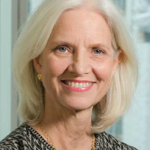Dr. Baraf earned his medical degree from The State University of New York, Downstate Health Sciences University Brooklyn, completed his internal medicine training at The George Washington University Hospital and did his fellowship in rheumatology at Duke University, Durham, N.C.
Beginning in 2010, Dr. Baraf coordinated efforts between a large regional commercial payer, a pharmacy benefit manager and 81 rheumatologists in the Washington metropolitan area to operationalize the first effective clinical pathways program in rheumatology. He led a physician steering committee with Alan Matsumoto, MD, FACP, FACR, to develop cost-effective guidelines governing biologic response modifier use for the treatment of rheumatoid arthritis and other rheumatic diseases. He effectively negotiated with the various stakeholders to develop parameters for compliance, a fair reimbursement arrangement and deployment of data-sharing tools.
The program successfully managed cost by instituting algorithms for biologic initiation, dose escalation and drug switching, and by encouraging economical site-of-service decisions. The pathways program operated successfully through 2017, when the insurer changed its pharmacy benefit manager contracts. It continues to serve as a template for similar efforts throughout the U.S.
Dr. Baraf has served on numerous committees of the ACR, contributing to programming for its annual meeting, helping develop quality-of-care measures and, more recently, lobbying Congress for more rational payment systems for patient care. His efforts were instrumental in the ACR’s adoption of freestanding musculoskeletal ultrasound courses for rheumatologists. In 2014, the ACR granted him the Paulding Phelps Award.
As the founder of the Center for Rheumatology and Bone Research, a division of his medical practice, Dr. Baraf served as an investigator on over 400 clinical trials of treatments for gout, rheumatoid arthritis, Sjogren’s syndrome, osteoarthritis, systemic lupus erythematosus and other disorders. He has authored or co-authored more than 30 peer-reviewed papers and 70 abstracts.
“I am honored and humbled to be recognized by the ACR with this prestigious award,” Dr. Baraf says. “In building a viable Pathways program, I, along with other rheumatologists in our region, demonstrated that clinicians and payers and pharma can work collaboratively to create better care constructs for patients. The goodwill that our project engendered between these parties, which are typically at odds with one another, was productive and gratifying and enlightening.
“For more than 40 years, I have been passionate about delivering rheumatology services in the private setting. Our Pathways program proved that significant advances in patient management can originate in independent practices that can serve as a laboratory for improving the paradigm of care delivery,” he concludes.



